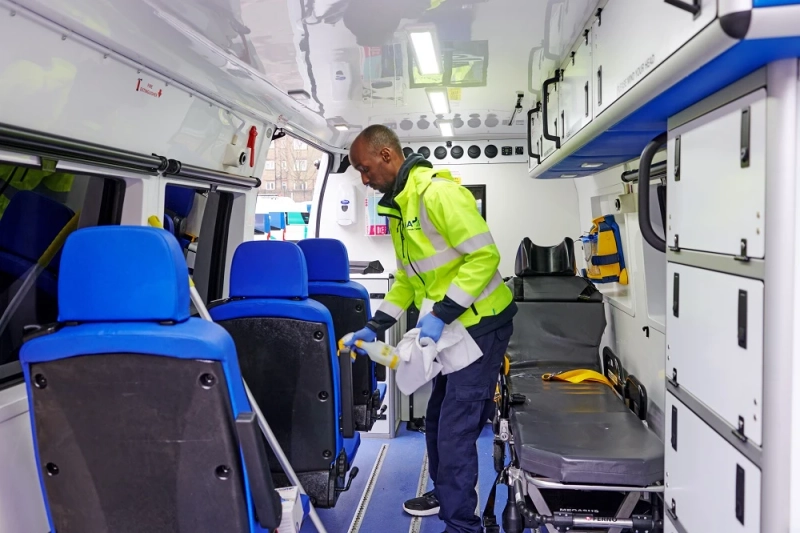For years, patient transportation has been incredibly challenging. Moving patients from one facility to another requires proper coordination, skilled drivers, and reliable vehicles. However, as technology has developed over time, the world of patient transportation has gradually evolved, with one perfect example being GPS tracking. GPS tracking is a powerful tool that has revolutionized the patient transportation industry by improving safety and enhancing reliability. In this post, we will explore how GPS tracking can enhance the safety and reliability of patient transportation.
Increased Safety MeasuresThe safety of patients is paramount in patient transportation. With GPS tracking, there is an increase in the safety measures taken by patient transportation companies. Through GPS tracking, drivers are precisely tracked, allowing for exact tracking of their driving behavior, including speeding, abrupt stops, and other incidents that can compromise the safety of patients. In the event of an accident or an emergency, GPS tracking enables dispatchers and managers to quickly locate the vehicle and be on the scene immediately, thus minimizing any negative outcome.Improved Driver Behavior Monitoring
GPS tracking has also helped improve driver behavior, which is a crucial factor in ensuring the safety of patients. Driver behavior is monitored using GPS tracking and analyzed to identify areas where improvements can be made. This means that transportation companies can easily identify drivers who exhibit risky driving behavior and provide training on better driving habits and safety protocols. This measure contributes significantly to reducing accidents and increasing patient trust in the transportation service.Better Route Planning
Another significant advantage of GPS tracking in patient transportation is improved route planning. With GPS tracking, transportation companies can plan more efficient routes, reducing the amount of time spent on the road and saving on fuel costs. GPS tracking tools can also zero in on alternate routes in the event of road closures or traffic congestion, ensuring that they arrive at their destination at the expected time. Transporting patients to and from medical facilities involves following specific routes, and GPS technology ensures that drivers follow the correct paths and avoid unmanageable road conditions.Improved Reliability
GPS tracking is also invaluable for patient transportation, as it enhances the overall reliability of the service. With GPS tracking technology, transportation providers can optimize their routes and reduce travel times, minimizing the likelihood of delays. This technology can also be used to prepare a backup vehicle in the event the primary vehicle experiences a breakdown, overload, or other issue. This ensures that the patient transport operates reliably, safely, and smoothly, providing the best experience to the patients, medical professionals, and other stakeholders involved.Efficient Complaint Resolution
Patient transportation service providers can use GPS technology to resolve complaints more quickly and efficiently. For instance, if there is a complaint about delayed arrival time or missed pickups, transportation providers can review the GPS tracking system to determine what went wrong. Sometimes, inaccurate or unreliable information from patients or providers can prevent efficient transportation service. Thus, a GPS tracking solution can provide valuable information to investigate and resolve any complaints, making for a more satisfied and trusting customer base.
Conclusion:
GPS tracking technology is transforming the world of transport services, including the patient transportation industry. With GPS tracking, transportation providers are considerably enhancing the safety and reliability of their services. The vital benefits of this technology include improved route planning, efficient complaint resolution, increased security monitoring, better route planning and reliable service. GPS technology presents new opportunities for transportation providers to improve their operations, enhance customer experiences, and help save more lives. With time, it will be no surprise if transportation companies continue to adapt and integrate advanced technologies like GPS tracking to provide better service to their patients and other clients.


